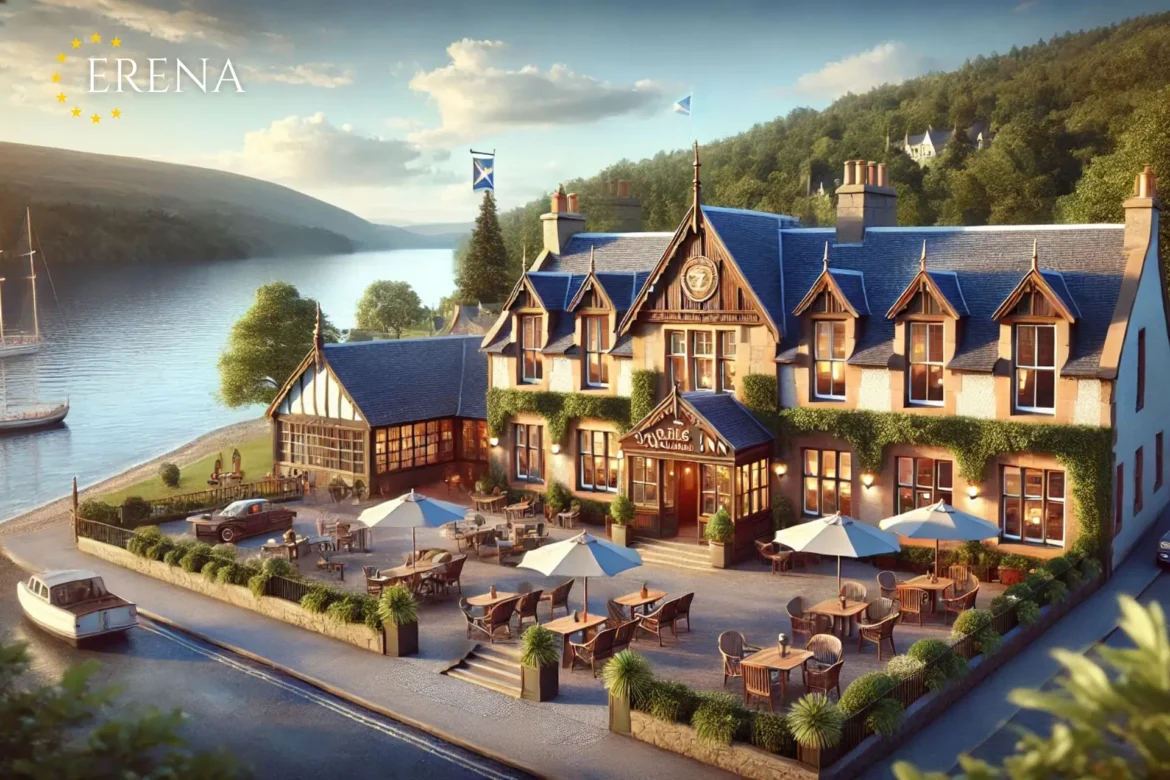Anders Holch Povlsen, the renowned Danish billionaire and owner of the successful Bestseller company, has recently acquired a historic property – the Dores Inn, located on the shores of the famous Loch Ness in Scotland. This event has attracted attention not only from the business community but also from the cultural world, as Dores Inn is an important part of the region’s historical heritage.
History of Dores Inn
Dores Inn is a historic hotel located on the northern shore of Loch Ness. Built in the 19th century, it has long been a popular stop for travelers visiting Scotland. The inn has preserved its atmosphere and historical significance despite facing financial difficulties in recent years. Now, this cultural landmark has been sold to Anders Holch Povlsen.
Who is Anders Holch Povlsen?
Anders Holch Povlsen is a Danish entrepreneur and philanthropist known for his acquisition of large tracts of land in Scotland, including forests and nature reserves. His business philosophy includes active involvement in environmental protection and the preservation of cultural heritage. Povlsen is also recognized for his initiatives in sustainable development and nature conservation. The purchase of Dores Inn continues his strategic approach to preserving historic buildings and promoting eco-friendly tourism.
Why Did Anders Holch Povlsen Buy Dores Inn?
The acquisition of Dores Inn is not just a business deal but also a step towards developing cultural tourism in Scotland. This region attracts thousands of tourists annually, and renovating Dores Inn could become a new draw for visitors interested in the unique atmosphere that combines the natural beauty of Loch Ness with Scotland’s rich history and myths.
The inn has immense potential to attract tourists, particularly those interested in Scotland’s history, culture, and legends. With his experience in managing natural resources, Povlsen could transform Dores Inn into an eco-sustainable and culturally rich center, helping to preserve local traditions and support sustainable tourism.
Economic and Cultural Impact
Purchasing a historic property like Dores Inn will have a significant impact on the local economy. Renovating the hotel is expected to increase tourist numbers and create new jobs in the area. In the long term, this could serve as a foundation for the growth of Scotland’s tourist infrastructure, benefiting local communities.
Furthermore, the acquisition holds important cultural value for Scotland. Preserving historical buildings like Dores Inn strengthens the region’s cultural image and draws attention to its heritage. Investing in such projects helps protect cultural landmarks while offering tourists the opportunity to experience Scotland’s traditions and culture.
Sustainable Tourism and Ecology
One of the key aspects of this acquisition is Povlsen’s commitment to sustainable tourism. In his projects, he emphasizes environmental standards, such as using renewable energy, reducing carbon emissions, and minimizing waste. This philosophy is likely to extend to Dores Inn, which will likely become an example of eco-sustainable hospitality.
Creating such a property will attract tourists who value eco-conscious initiatives and responsible business practices. This could be an important step in the development of eco-tourism in Scotland and inspire other companies to adopt sustainable practices.
Conclusion
Anders Holch Povlsen’s acquisition of the historic Dores Inn on Loch Ness is an important step in developing cultural and eco-friendly tourism in Scotland. This is not only a profitable business deal but also a contribution to preserving the region’s cultural heritage. Povlsen continues to follow his philosophy of sustainable development, blending business interests with a commitment to nature and culture.
This project could serve as an example of how business and sustainability can go hand in hand, fostering economic growth, environmental protection, and the promotion of cultural traditions.

